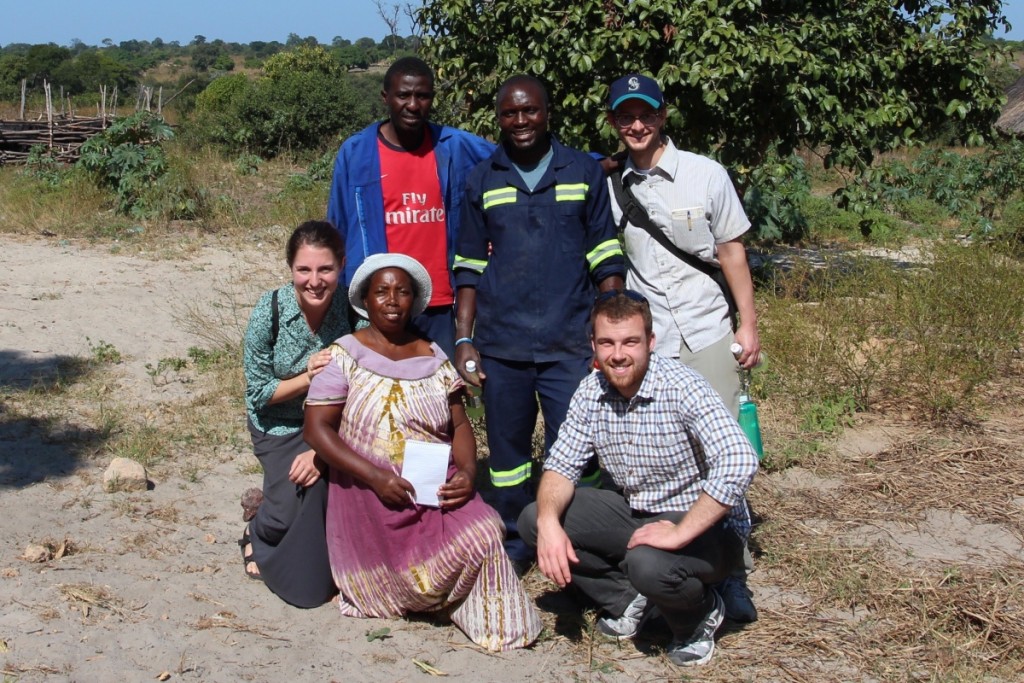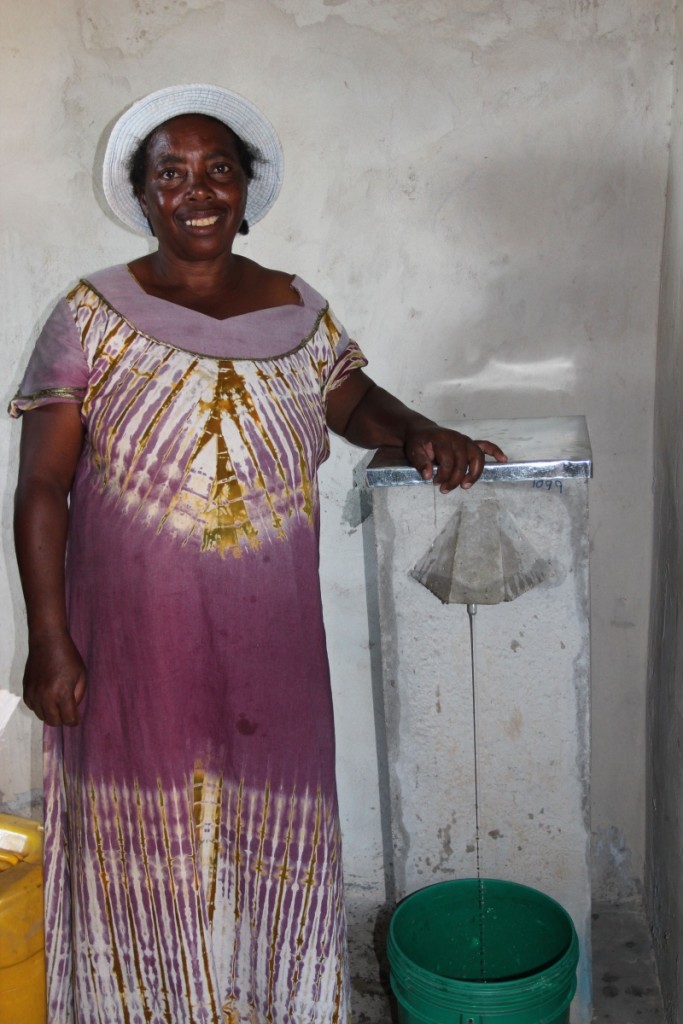As we finish up the last days here in Zambezi, I reflect back on the unexpected experiences I have had so far, changing the way I look at the world with its issues and its hopes. I have gained understanding in areas that were previously unknown to me and struggled to know other experiences.
I now understand what it feels like to be in the minority. I understand standing out because of my skin color. I understand the confusion of completely not understanding the local language. I understand that getting laughed at for attempting Lunda or Luvale does not always mean that I suck at it, and if it does, I understand that that’s ok. I have been exposed to these situations for the first time and although I do not have complete comprehension, these things carry me forward on my journey toward growth and self-awareness.
What I still don’t understand is the absence, or inconsistency, of thought about the necessity of clean water. Last week, the engineers (Collin, Reilly and I) worked with an organization called Seeds of Hope. This is an organization that has developed a technology to clean drinking water. It is a small scale in-home slow sand filter. We went to two villages, Lishipa and Mize, to deliver the 22 filters that were purchased for the project. We were accompanied by Seeds of Hope staff Samson and Elijah. I saw their passion for Seeds of Hope in some distinct and inspiring ways. Elijah told me his story in the driver’s seat of the truck as we headed to Mize. He had been a man far from God when he decided to turn his life toward Christ and eventually found his way to Seeds of Hope. He shows a love for serving God and others. Samson described to us, as we crossed the Zambezi River in a thin, hand-dug wooden canoe, the fact that only a very small percentage of the Zambian government’s budget is dedicated to sanitation, while a good portion of it was dedicated to health. He emphasized the fact that if more were spent on prevention rather than treatment, Zambia could be a more healthy country. He was fired up and knew exactly what he was talking about. Both of these committed men fueled my views on why clean drinking water is so important and needed.
The people in the villages surrounding Zambezi generally get their water from shallow wells or bore holes. These two sources of water are open to the atmosphere and are very susceptible to contamination. In the engineering class that we teach in the afternoons we gave some paddle water tests to our students to take home and pour water over. After receiving the results of our bacteria tests, it was evident that in the water that our students had tested there was plenty of bacteria present. This was true for primarily the tests done with water from shallow wells or bore holes, but even some of the tap water samples indicated positive results.
In some ways I expected to come to Zambia and have people be specifically aware of their need for clean water, but mostly we saw blank stares or curious faces when we educated on the critical need to make sure water is safe before drinking. The issue of the lack of clean water goes much deeper, revealing social issues involving practicality of their current methods of cleaning water and public opinion about its quality. Even when the communities did know that their water was at times dirty, they did not very often understand how important it was to boil or filter it. This action could work wonders in a community that sees multiple cases of diarrhea in a week.
I technically understand that there are difficulties to always cleaning the water. This comes partially in the form of a lack of knowledge, as at times the water may look pathogen-free despite the presence of contaminants. I can also see that it is a lot of work to boil water every time you want to use some. However, I struggle to understand how there is little connection between the amount of illness that the vulnerable face and the contamination of the water. A common myth that we heard when delivering filters was that the reason for diarrhea in babies was that they are teething. Samson brought this up while we were doing the educational portion of the installation and just about every woman nodded in agreement. It was hard for me to believe the predominance of this myth, but as I think about it I realize that we have similar myths in the US. We have used wives tales for years in our history to explain phenomena that we could not figure out. Although sometimes it seems as though we are not contributing enough to the Zambezi community, the knowledge that we are sharing changes these prominent myths and also changes the lifestyles of the people. When we were teaching a group of community members in Nsangula, the headwomen’s face shone with a smile as she clapped in appreciation. She pointed out to us how the valuable information of the importance of water filtration and of how to tell if a baby was dehydrated was going to improve the habits and health of those she was leading.
Although the lack of knowledge about water borne illnesses and importance of cleaning drinking water is something I have a hard time wrapping my head around, I do see people in remote areas taking strides toward a healthier water situation. I see community leaders set on informing those around them to make their water safe. I see an overall desire for improvement, even though it may not be immediate. And I see Zambians valuing improvement in technology and education, like the slow sand filters, to make their water cleaner for their community. I hope as I continue to reflect and analyze all of the data that I have taken in so far, I can see through the eyes of the Zambian community and walk with them to establishing safer drinking water.
I have met some pretty amazing people here who inspire me to be a better engineer and person. I can’t wait to form these hints of understanding into actions and attitudes as I return to the US. And to Zambezi, I am intrigued by you and will miss your presence in my daily life, but I will never forget the lessons that you have taught me. Thank you.
Kisu Mwane,
Allie Reiling
Class of 2016



Shout-out to the beautiful Allie Reiling! The Alvarez family sends their greetings and best wishes to you and everyone else in the Gonzaga-in-Zambezi program.
Miss you so much and can’t wait to see you soon!
-Miguel
On behalf of the people of zambezi and on my behalf, we will miss your presence here And we wish you Guys A safe journey!!!
bree & venezia, love U guys and God Bless U!!!!
Allie!
Sounds like you have brought your beautiful heart and mind to Zambia. It is so exciting to hear about the ways you’re listening to and sharing with the community. I miss your wisdom and honesty and I can’t wait to hear more about your adventure!
P.s. Tell Joel and Katie that Zack and I miss them like crazy. Also give Lindsey a big hug from Maddie, Mak and I.
ALLIE!!!
I know I’ve missed the morning reading of the blog and its comments, but I still had to leave you with some love. Beautiful reflection. You hit on the head so many tensions that are deeply rooted in the Zambezi experience, and Its really awesome to see how your understanding of culture is shifting. I hope you have had a life changing experience. I know of many people, you are one who I worry the least about leaving your experience on a shelf. I have no doubt this will shape who you are, every fiber of the loving being that you are.
It was great to hear from you. Enjoy your last few days in country.
Looking forward to talking to you soon.
-House
I could tell this was your writing right when I read the first couple of words! Such talent girl! It’s so great hearing about your experiences and take aways! Can’t wait to hear more!
Hope everyone is doing great over there!
-Monica